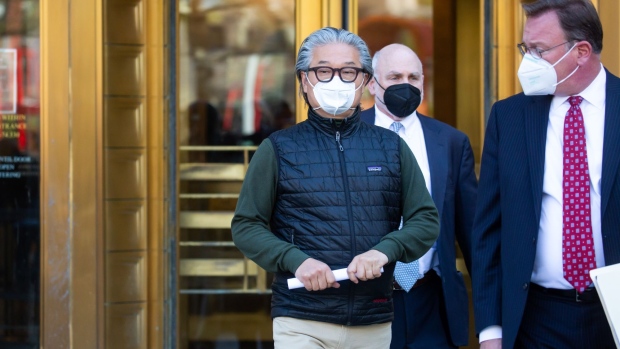Attorneys representing Sung Kook “Bill” Hwang are gearing up to challenge what they see as a novel and illogical market manipulation theory put forth by prosecutors as the trial of the former Archegos Capital Management chief commences in New York this month.
Archegos, a family office managing approximately $36 billion of Hwang’s personal funds, made headlines with its dramatic collapse in March 2021. The downfall came swiftly as the firm’s heavily leveraged bets on a select few stocks via complex derivatives went awry.
Prosecutors allege that Hwang and his associates misled banks about the scale of Archegos’ derivative positions, securing billions in loans used to artificially inflate the prices of underlying stocks through open market purchases.
As the financial house of cards tumbled in March 2021, prosecutors argue that Hwang’s actions led to significant losses for global banks, with Credit Suisse alone facing a staggering $5.5 billion hit, contributing to its own woes. The collapse also purportedly resulted in over $100 billion in losses for shareholders of companies in Archegos’ portfolio.
The upcoming trial, commencing with jury selection on Wednesday, is poised to offer insight into the inner workings of Wall Street and banks’ dealings with high-risk, high-reward clients.
Joshua Naftalis, a former prosecutor now with law firm Pallas, noted the trial’s significance within Wall Street circles due to the substantial losses incurred by banks like Credit Suisse.
Hwang, renowned for his bold investment strategies, maintains his innocence, labeling the case as the “most aggressive open market manipulation case ever” in a court filing last December.
Legal experts anticipate a challenging battle for prosecutors, given the untested nature of the market manipulation theory and the unconventional status of the Wall Street banks as purported victims.
Brian Klein, a former federal prosecutor now with Waymaker law firm, remarked on the ambitious nature of the prosecution’s approach.
Robert Frenchman, an attorney experienced in defending clients in market manipulation cases, noted that typical manipulation cases involve deception, a factor seemingly absent in Archegos’ open market transactions.















































